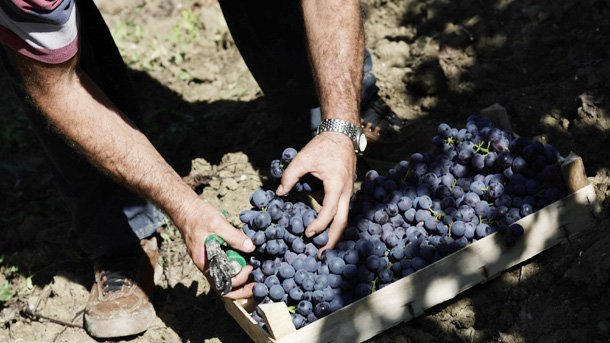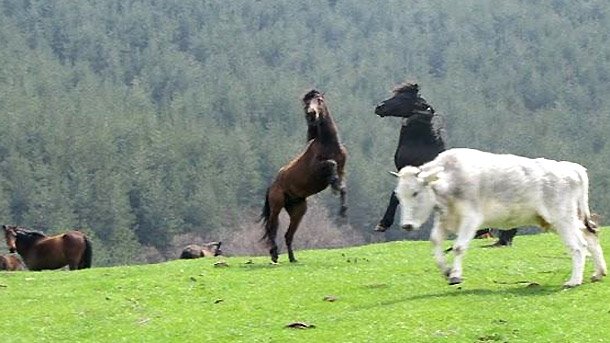
The proposed amendments to the Common Agricultural Policy 2014-2020 drafted by the European Commission lay an emphasis on the adoption of policies that encourage ‘green’ practices. Thus, the European Union’s executive body envisages 30% of the funding for direct payments to farmers and 25% of the subsidies for the development of rural areas to be directed to that end. With its natural assets and agricultural traditions Bulgaria is bound to be a leading country in the field of organic farming. Unfortunately, for a number of reasons the country is still lagging behind, although there has been some sort of movement in going on in latter years.
Thus, the total surface of the plots for organic farming has increased tenfold compared to 2008. In 2010 the number of registered organic farmers was 820, which is four times more on 2006 figures, which can be explained with Bulgaria’s accession to the European Union and the access Bulgarian farmers have been given to EU funding. Also growing is the number of beekeepers in this country, who turn towards organic apiary. In fact, their total has doubled on 2008 estimates. However, the total area of the arable land dedicated to organic farming remains modest – some 25 000 ha. Equally scarce are the European subsidies that had been paid to organic farmers under the Rural Development Programme, which amounted to EUR 3.75 million in 2008, EUR 5.7 million in 2009 and EUR 11.1 in 2010.
“The pace at which organic farming develops in this country is not satisfactory,” Deputy Agriculture Minister Svetlana Boyanova pointed out. “There is still a lot to do in terms of improving administrative procedures. But I am optimistic and I believe that with the support of EU funding and the natural assets this country has to offer, we shall be able to remove the existing obstacles. The statistics prove this and in all likelihood organic farming will expand. It is our job as representatives of the state to do our best to facilitate them in doing so. That requires a great deal of awareness of application procedures for EU, and also of the best green practices, which goes along with more rigorous eligibility criteria.”

© Photo: www.newthraciangold.com
There are still 200 organic farmers in Bulgaria who have not been included in the EU-funded schemes, and these people will be our target group, Ms. Boyanova maintains. The Agriculture Ministry has proposed the allocation of EUR 32 million from the state budget to be redirected to the modernization of the existing farms for investments in organic farming. Currently only 5% are earmarked for farmers who wish to switch to organic farming under that particular measure of the Rural Development Programme. The EU is yet to give its approval of this transfer, as well as of the increase in compensatory subsidies for organic farming. The amount of the latter was last updated in 2006.
“But the situation has changed a great deal ever since,” Ms. Boyanova explains. “Meanwhile the expenditures on the purchase of seeds, organic fertilizers, work force, etc. have increased. We did the necessary calculations and came up with higher payments. If the European Commission approves our estimates by the end of the year, we shall be able to pay higher subsidies to the organic farmers in December.”
In October a number of Bulgarian cities hosted the Biomania festival of organic farming, whose objective was to promote the domestic agricultural organic produce to the Bulgarians, and to discuss issues related to EU funding to that effect.
Currently 95% of the Bulgarian organic products are exported. Their consumption on the domestic market is more than symbolic. For obvious reasons the main focus is on the growing of cultivated herbs and oil-yielding plants. Thus, the lavender fields occupy the largest portion of plots with organic plants – 10% of the total surface. There is also an interest in growing walnut, chestnut and almond trees, and cereals. The volume of organic vegetables is still very low in Bulgaria. And so is organic stockbreeding, which is represented mostly by the organic raising of sheep and goats.
English version by Radostin Zhelev
Topics related to renewable resources and natural disasters united students from the Bulgarian Sunday School "Assen and Iliya Peykovi" in Rome, the First English Language School in Sofia and the Greve High School near Copenhagen. The project aims to..
More than 50 wine producers from Bulgaria and Greece are going to take part in the contest for best wine with which the two-fay wine festival will kick off in Delchevo village near Gotse Delchev. Expert oenologists will evaluate a total of 134..
The day of St. Tryphon is marked on 1 February old style (14 February new style), and i n the folklore calendar it spans 3 days, known as Trifontsi – 1,2 and 3 February. Known in popular tradition as Trifon Zarezan (Trifon the pruner), it is a..

+359 2 9336 661
